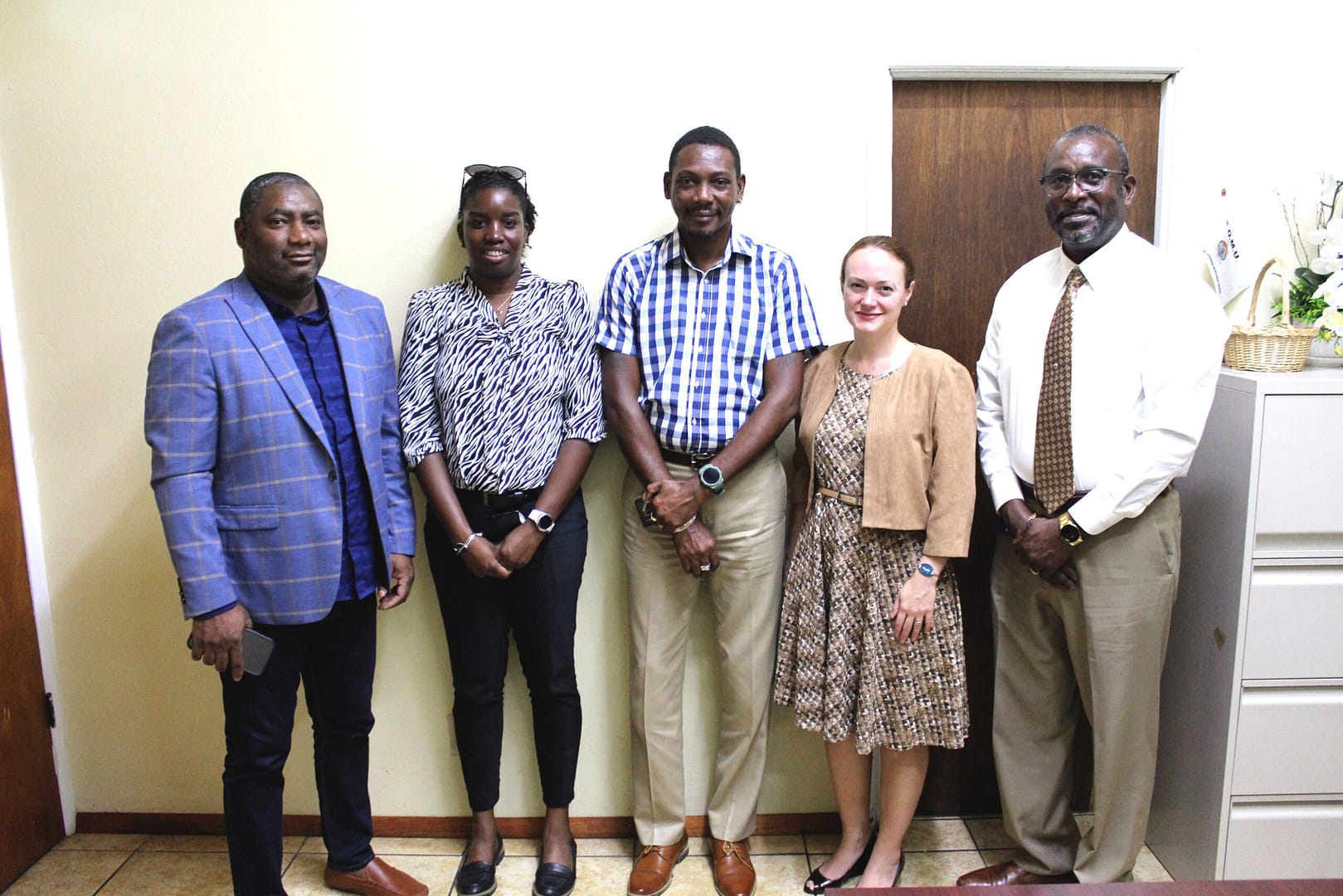
US Embassy Country Officer for Antigua Meets with ABWU
The impact of Chinese developmental projects, migrant workers and the lack of tripartite engagement were some of the issues discussed during a recent meeting between the Antigua and Barbuda Workers’ Union and the U.S. Embassy’s newly appointed Country Officer for Antigua and Barbuda, Ms. Tabitha Snowbarger.
The Country Officer and her colleague, Mrs. Amelia Swift, Political Specialist in the Political-Economics section of the U.S. Embassy, Bridgetown, were gathering information on labour relations and workers’ rights for the 2022 Antigua and Barbuda Human Rights Report.
Much of the deliberations centered on concerns about the way Chinese developmental projects have been negotiated and executed.
General Secretary, David Massiah, contended that such projects brought little benefit for ordinary Antiguans and Barbudans, as the involvement of local labour had been limited to menial, low-paying jobs.
The General Secretary also noted that opportunities for skills transfers had been almost non-existent.
Massiah further explained that the failure to train locals on maintaining Chinese equipment had created additional challenges for workers whose jobs depend on the functioning of these equipment.
Moreover, Massiah added, some Chinese projects had violated environmental codes and disregarded local health and safety standards.

The Deputy General Secretary, Chester Hughes, urged that Caribbean governments should “stop looking towards fast-paced, competitive development and look towards slow-paced meaningful development.”
The Country Officer enquired about the conditions of employment for migrant workers. Massiah revealed that exploitation is common among this group of workers.
Hughes, in supporting this position, indicated that the current policy governing the issuance of work permits made it exceptionally difficult for migrant workers to navigate within the labour market.
He noted, for example, that presently, work permits are not transferable from one employment to another.
Consequently, migrant workers must pay for a new work permit each time they change employers. Moreover, the Deputy General secretary explained that the cost of work permits has tripled within recent years.
Another area of concern that emerged during the discussions was the need for a tripartite approach towards the ratification and implementation of international conventions. The General Secretary noted, for example, that there had been no consultations with stakeholders ahead of the ratification of ILO Convention 190. This resulted in certain anomalies that could have been addressed prior to ratification. Further, Massiah insisted on the need for greater dialogue as Antigua and Barbuda joins the rest of the world in preparing for a “just transition” to more sustainable forms of energy.
He chided the government and its “just transitioning” team for attempting to use the Union only to “rubber stamp” its presentation to the COP22 meeting, as opposed to seeking a genuine exchange of concerns with regards to the impact on jobs.
The possibility for a resumption of training opportunities in Industrial Relations also formed part of the discussions. The Union Officials identified three priority areas: Labour Statistics, Mediation and Labour Inspection for Labour Practices. The U.S. Embassy Country Officer expressed interest in facilitating these training opportunities.
Advertise with the mоѕt vіѕіtеd nеwѕ ѕіtе іn Antigua!
We offer fully customizable and flexible digital marketing packages.
Contact us at [email protected]

















“He, Chester Hughes noted, for example, that presently, work permits are not transferable from one employment to another.
Consequently, migrant workers must pay for a new work permit each time they change employers. Moreover, the Deputy General secretary explained that the cost of work permits has tripled within recent years.”
Is this something which happened within the last eight years? Hmmmmmm, why wasn’t this amended to be employment-friendly for Caribbean nationals?
From recent news, the current administration is discussing a change of policy on this matter.
In any case, what has the US done for developing countries in the Caribbean to bring much needed assistance I’m growth and development?
All they do is collect data to decide how to categorize us. What tangible investments or sustainable projects are they offering?
The Chinese might not good for us but they bring something to the table.
How many American built structures are in Antigua and Barbuda?
In Antigua All investors do the same. We have expats coming here to work at one hotel and are here after they are laid off or they just change jobs.
The investors here are not Antiguans friendly. We send our people to study and yet they are not given opportunities to shine in their own country. There is always some white man sitting behind the desk and our people doing the work. This must stop .
I just wonder, did she meet only with the ABWU or did she meet with all unions? Cause if that is not the case, one must wonder what the motive here is. It is these types of tactics that cause the USA to have a bad name and being accused of instigating confusion, protestations and ultimately chaos in some countries. Are they working on doing that here in peaceful Antigua and Barbuda?
Comments are closed.